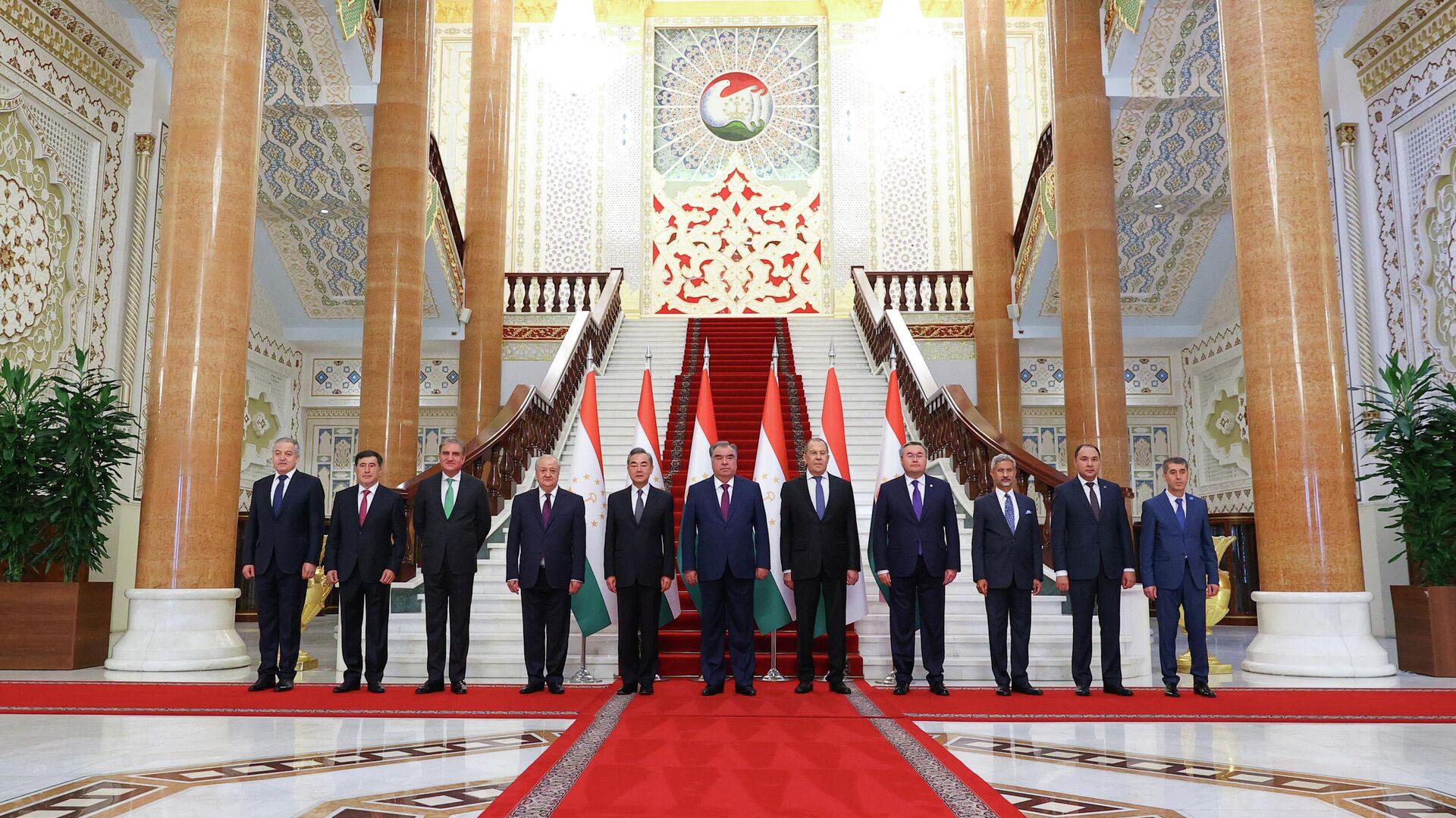Iran Proposes Trade in Single New Currency Between All Shanghai Pact States
23:22 GMT 03.06.2022 (Updated: 05:42 GMT 30.04.2023)

© Photo : RUSSIAN FOREIGN MINISTRY
Subscribe
Having recently joined the Eurasia-spanning Shanghai Cooperation Organization, or Shanghai Pact, Iran has proposed that the group’s nine member states introduce a new common currency to facilitate trade.
Mehdi Safari, Iran's Foreign Minister for Economic Diplomacy, announced the request earlier this week, Iran’s Islamic Republic News Agency (IRNA) reported, noting the letter had actually been sent almost two months ago.
Safari added that Iran would take up the proposal again at the next SCO summit in September, which is being hosted by Uzbekistan.
The proposal follows an effort begun in September 2021 to gradually transition to mutual settlements in national currencies as part of developing SCO members’ financial cooperation and as a bulwark against US sanctions.
"By extending local currency settlements, SCO countries would lower the risk of being punished by the US via financial means, such as freezing US dollar assets involved in SCO countries' trade," Dong Dengxin, director of the Finance and Securities Institute of Wuhan University, told the Global Times.
The bloc’s nine members - Iran, China, Russia, India, Uzbekistan, Kyrgyzstan, Tajikistan, Pakistan, and Kazakhstan - each use their own currency, although many of the former Soviet republics continue to see some business in their countries done in Russian rubles. Iran is the organization's newest member, with its application being unanimously approved last September.
The Shanghai Cooperation Organization (SCO) was founded in 2001 by China and Russia, and has become a counterbalance to the US-led NATO cartel (though the SCO is not exactly a military alliance in the same way)
— Benjamin Norton (@BenjaminNorton) September 17, 2021
Iran is now a member. Belarus is likely next, then maybe Afghanistan pic.twitter.com/LzF0k3MyLN
Together, the nine countries include approximately 60% of the area of Eurasia, 40% of the world’s population, and 30% of its gross domestic product. Having a single currency with which to conduct business between them would greatly ease trade - something Iran, still under US sanctions, is looking to bolster as much as possible.
Other SCO members are also targets of US economic sanctions, especially Russia after the launch of its special operation in Ukraine in February. In that time, Moscow has also looked to its Asian partners, with China and India eagerly buying up Russian gas and coal exports in spite of US threats. China is buying Russian oil using its own currency, the yuan.
Indeed, Iran’s trade with SCO members is already expanding, with Iran’s customs administration reporting on Friday that trade with China had increased by 25% since 2021. In recent days Tehran has also penned deals aimed at bolstering trade with Kazakhstan and Pakistan, and in February, Tajikistan and Iran pledged to dramatically increase bilateral trade to $500 million per year from its value last year of $121 million, which was itself a doubling of 2020 trade.
After the Taliban* seized power in Afghanistan in August 2021, the Shanghai Pact states bordering Afghanistan attempted to pressure the Islamist group down a more moderate path than that taken in the 1990s. It was anticipated that the country might one day join the pact - its past applications being rejected variously by Tajikistan or Pakistan - by offering them economic stability via increased trade in exchange for dropping their support for terrorist groups like Al-Qaeda** and the East Turkestan Islamic Movement (ETIM). However, with the US continuing to reject the Taliban government and the Taliban showing little interest in keeping its promises of moderation, recognition by SCO states has not been forthcoming.
At the SCO meeting in New Delhi last month, anti-terrorism efforts in Afghanistan were on the agenda, but Taliban recognition and SCO membership were not.
*The Taliban: a group under United Nations sanction
**Al-Qaeda: a terrorist group banned in Russia and many other countries
